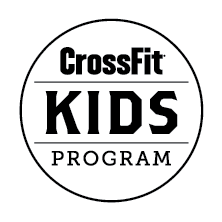
Does it matter WHEN we eat?

Sure, it matters what we eat but, does it matter when we eat? Over the years, this has come to be known as nutrient timing, and it is something that sports experts pay attention to closely. Thanks to the many studies that have been completed, it is certainly now an exciting topic that promises a lot, and we are going to investigate further today!
Post Workout – Perhaps above all else, when to eat around a workout has been one of the biggest questions in recent times. As a result, we have seen numerous different suggestions, but it is important to note that things have changed somewhat over the last decade. In the early 2000s, we learned that previous nutrient timing strategies were only good for the short-term, and that there wasn’t any ‘hard’ data on the correlation between nutrient timing and weight loss or the gain of lean mass.
Assessing the Studies – Whenever this topic arises, there is always a good amount of conversation surrounding studies and research, but how important is this? Well, let’s not forget that studies aren’t always accurate or reliable. With this in mind, we would prefer to draw from our own experience, and we are going to start by saying that nutrient timing shouldn’t be the main focus for anyone attempting to look or feel better.
At this point, we aren’t saying that nutrient timing is useless nor that it will fade away looking ahead. However, we have found that people tend to get lost in nutrient timing and it causes them to forget more important factors such as vegetables, sleep, and others. If we were to summarize nutrient timing, this would be our conclusion but we aren’t so naive as to say it isn’t important. Below we have some tips and information as to when it can be useful.
Anabolic Window and Meal Scheduling – If you work out regularly, you will have heard about the magical ‘anabolic window’ which is a 45 minute period after exercise where our bodies search for nutrients. In theory, the nutrients consumed in this time frame get to work quicker. The problem with this is that, going back to the studies, the research was only ever looking into the short-term effects which means that there is no evidence to suggest any long-term benefits from this window.
Instead, we believe that book-ending your training with carbs and protein will work just fine, as long as you consume the nutrients within a couple of hours either side. On a wider scale, there is evidence to suggest that high calories at breakfast is positive as well as at dinner. Perhaps more than anything else, this tells us that we are all unique. As we have said before, you need to follow your own rules and find what works for you. Rather than trying what everyone else is doing, spend some time learning how your body reacts to certain nutrients at certain times and you can create your own schedule.
For example, there are both benefits and drawbacks to eating breakfast in the morning. On the one hand, you reduce your appetite moving on with the day and you are less prone to snacking. On the other, Type 2 diabetes sufferers find it effective to skip breakfast for weight loss. Longer periods of fasting, and working out in a fasted state have also shown great promise in rapidly reducing body fat.
Frequency? – Before we leave you to your day, we should address one more common question and this is meal frequency. Although it may not surprise you, we suggest finding what works for you once again. As long as you are consuming the right nutrients at times that are good for you, you can have three, six, or even eight meals per day!
I know, it’s complicated stuff. But don’t worry because we’re here to help. If you have any questions about nutrient timing, or anything else related to nutrition and fitness, just click the link below and book a free 20 minute consultation.




